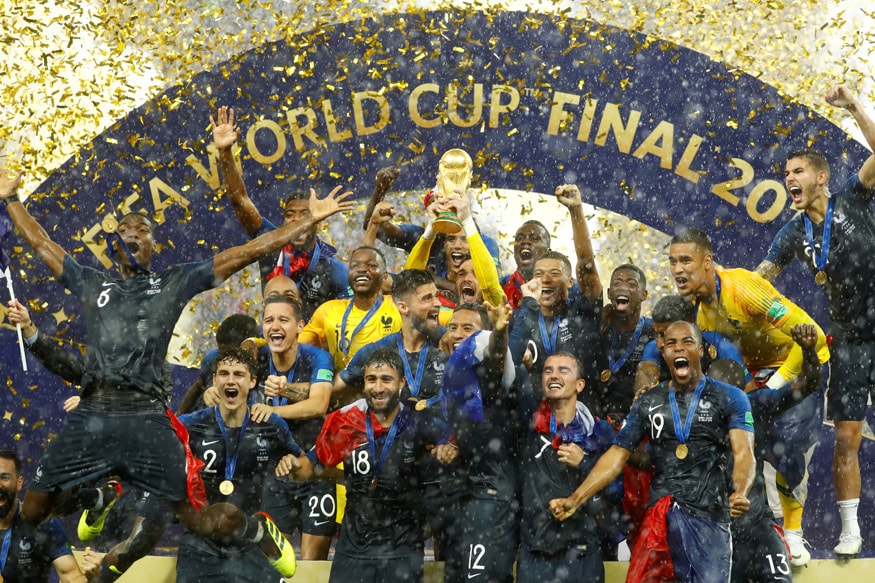
At a time when the anti-immigrant backlash is plaguing the world, France’s football team, with its multiracial diversity, won the 2018 FIFA World Cup.
So a lot of people wanted to congratulate the diverse team. So did Amitabh Bachchan. The Bollywood superstar, a regular fixture at sporting events, had even attended the semifinals between France and Belgium.
@sahluwal wrote, “This French team is one of the most diverse. 16 of the 23 players on the team come from families that recently immigrated to France from places like Zaire, Martinique, Cameroon, Morocco, Angola, Congo & Algeria. It’s amazing how immigrants can change culture.”
Bachchan, in all his joy and jest, quoted the tweet and went on to write, “Thats it then Africa won the World Cup 2018.”
“Didn’t expect this Tweet from Big B. If a nation could integrate their immigrants to the mainstream of society so successfully, it’s a huge credit to them,” responded one disappointed user.
“No wonder we can never go beyond a being 8 nation cricket wonder .. when ppl leave in ignorance.. these french players rnt any recent migrants ..& why french most European teams are.. also credit to french sports system.. Deschamps as well,” wrote another.
But did BigB just go with the typical racist stereotype that all blacks are from African countries or was he just too, for a lack of a better word, ignorant to find out?
Defender Samuel Umtiti, who scored the goal that sent France to the final, is one of two players in the team who is actually from an African country, Cameroon. The only other African-born player is the reserve goalkeeper Steve Mandanda.
Of course, there are French-born players whose parents came from Algeria, Mali Angola, Congo, Mauritania, Senegal, Nigeria, Morocco amongst other countries. That doesn’t make them any lesser French, right?
When France won its first World Cup 20 years ago, with Zinedine Yazid Zidane, its talisman and playmaker, the team was referred to as “Black-Blanc-Beur” (Black-White-Arab), a positive reference to its diverse ethnic make-up. Zidane, whose parents emigrated from Algeria to France in 1953, became a symbol of the multicultural French society.

“Black, Blanc, Beur” was a slogan often touted as a mythological tricolor of racial tolerance. Zidane was dismissive of the label at first but he did acknowledge that there was a multicultural pride that surrounded the team. He was famously quoted as saying, “This mix was our strength.”
Despite the Algerian roots, when Zidane kissed the 1998 trophy and cried while singing the French anthem, he transformed into both a national hero and the flag bearer of a pluralistic France,
20 years later, things are pretty much the same for France or even better.
16 of the 23 players on France’s multi-ethnic team come from families that recently immigrated to France from places such as Zaire, Cameroon, Morocco, Angola, Congo or Algeria,

This doesn’t take away the fact that they aren’t French. While the victory has helped foster a sense of national unity in France, and the commentators are playing up the fact that the squad, the second-youngest in the competition, includes many with central and north African heritage.
It’s interesting to note that all but two players were actually born in France.